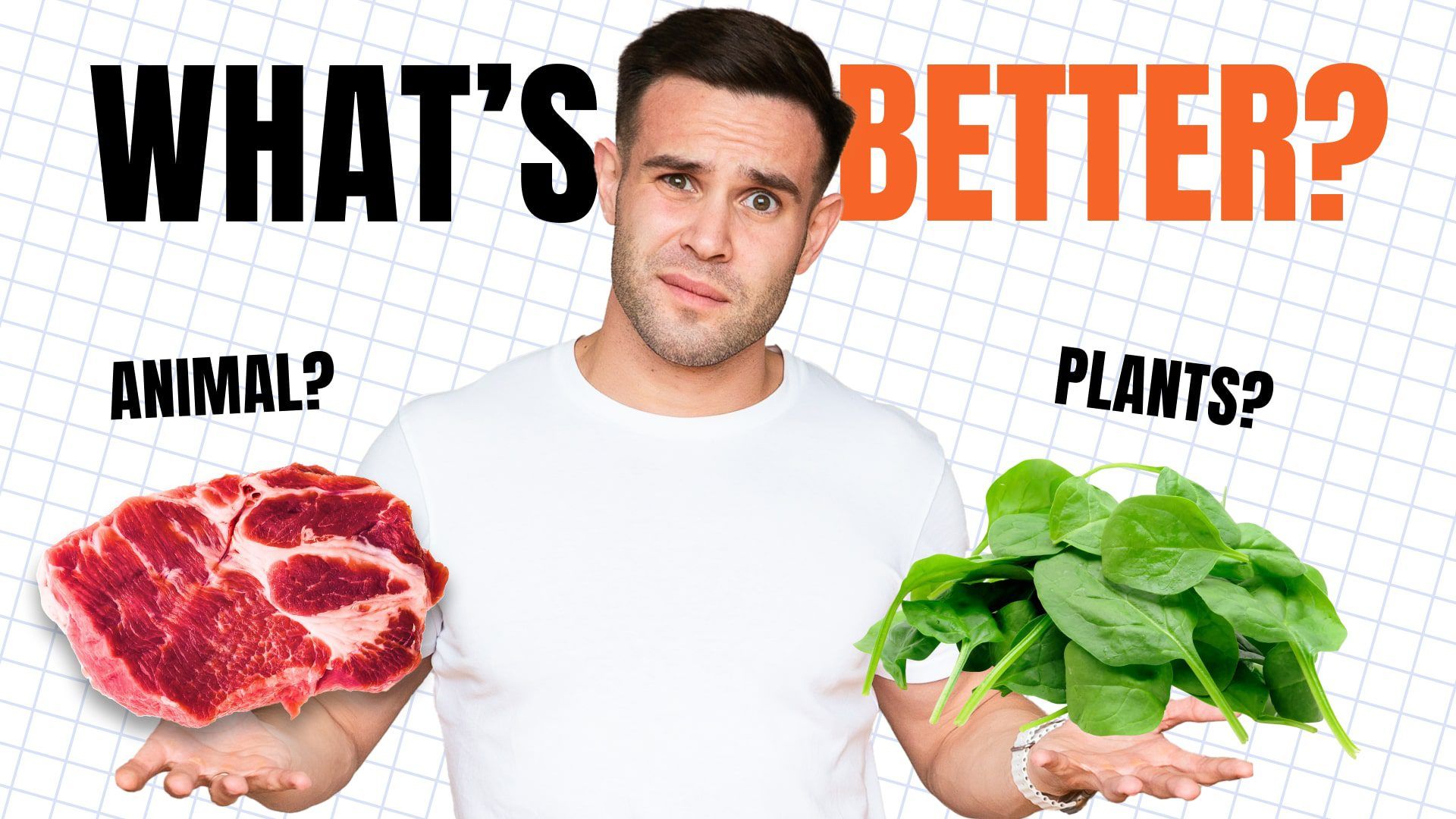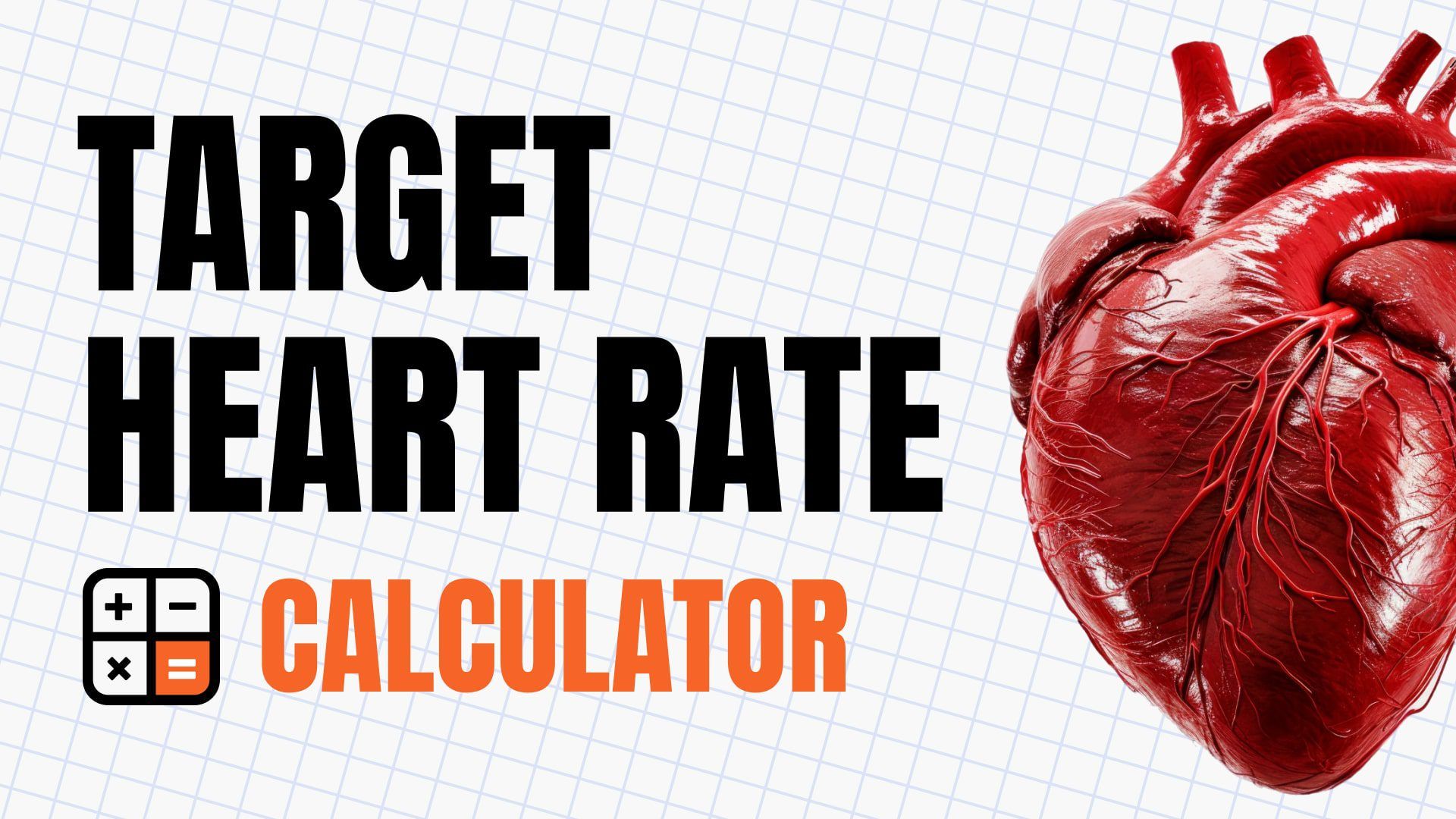Table of contents
In this article, you will learn
Protein is vital to a healthy diet, but not all protein sources are created equal. In this article, you will learn about the differences between animal-based and plant-based proteins, their nutritional benefits, and how to include both types in your diet for optimal health.
Don’t like to read? Watch the video
Comparing Animal-Based and Plant-Based Proteins
Both animal and plant-based proteins have their unique benefits and considerations.
Protein Quality
Complete vs. Incomplete Proteins: Animal proteins are complete, containing all essential amino acids. Most plant proteins are incomplete, but you can combine different plant foods to get all essential amino acids.
Bioavailability and Amino Acid Profiles: Animal proteins generally have higher bioavailability, meaning they are more easily absorbed and used by the body.
Nutritional Benefits
Animal-Based Proteins: Rich in high-quality protein, iron, zinc, B vitamins, omega-3 fatty acids (in fish), and vitamin D (in dairy).
Plant-Based Proteins: High in fiber, antioxidants, and vitamins and minerals. They are also free from cholesterol and lower in saturated fats.
Health Impacts
Cardiovascular Health: Plant-based proteins are associated with better heart health due to lower saturated fat content and higher fiber. Animal proteins, mainly red and processed meats, may increase the risk of heart disease.
Weight Management: Both types can aid in weight management, but plant-based proteins are often lower in calories and higher in fiber, promoting fullness.
Sustainability and Environmental Considerations: Plant-based proteins typically have a lower environmental impact compared to animal-based proteins.
Animal-Based Protein Sources + Benefits
Animal-based proteins are considered high-quality proteins because they contain all the essential amino acids your body needs.
Meat
Types of Meat: Beef, pork, chicken, lamb.
Nutritional Benefits: Meat is a rich source of high-quality protein, iron, zinc, and B vitamins. These nutrients are crucial for muscle growth, energy production, and overall health.
Fish and Seafood
Types of Fish: Salmon, tuna, mackerel, sardines.
Types of Seafood: Shrimp, mussels, crab.
Nutritional Benefits: Fish and seafood are excellent sources of high-quality protein and omega-3 fatty acids, which are essential for heart health. They also provide important vitamins and minerals, such as vitamin D and selenium.
Dairy Products
Types of Dairy: Milk, cheese, yogurt, cottage cheese.
Nutritional Benefits: Dairy products are rich in protein, calcium, and vitamin D. They support bone health, muscle function, and overall well-being.
Eggs
Nutritional Benefits: Eggs are a complete protein source containing all essential amino acids. They are also high in vitamins and minerals such as vitamin B12, riboflavin, and selenium.
[Image of various animal-based protein sources like meat, fish, dairy products, and eggs]
Plant-Based Protein Sources
Plant-based proteins can be as nutritious as animal proteins, especially when consumed in a varied and balanced diet.
Legumes
Types: Beans (black beans, kidney beans), lentils, chickpeas, peas.
Nutritional Benefits: Legumes are packed with protein, fiber, vitamins, and minerals. They are particularly high in iron and folate, which are important for blood health and energy production.
Nuts and Seeds
Types: Almonds, walnuts, chia seeds, hemp seeds, flaxseeds.
Nutritional Benefits: Nuts and seeds are excellent sources of protein, healthy fats, vitamins, and minerals. They support heart health and brain function and provide sustained energy.
Whole Grains
Types: Quinoa, brown rice, barley, oats, bulgur.
Nutritional Benefits: Whole grains offer protein, fiber, B vitamins, and minerals. They aid digestion, support heart health, and help maintain steady energy levels.
Vegetables
Types: Broccoli, spinach, Brussels sprouts, kale.
Nutritional Benefits: While vegetables are not typically high in protein, some, like broccoli and spinach, contain significant amounts. They also provide essential vitamins, minerals, and antioxidants.
[Image of various plant-based protein sources like legumes, nuts, seeds, whole grains, and vegetables]
Key Takeaways
- Both animal-based and plant-based proteins offer unique nutritional benefits.
- Animal proteins are complete and highly bioavailable, while plant proteins provide fiber and are environmentally friendly.
- A balanced diet incorporating both types of proteins can meet all your nutritional needs.
- Consider combining different plant proteins to ensure a complete amino acid profile.
If you have any questions or want to learn more, visit my blog and follow me on social media for helpful guides and health and wellness tools.
Works Cited and Relevant Links
- Harvard T.H. Chan School of Public Health. The Nutrition Source: Protein. Retrieved from https://www.hsph.harvard.edu/nutritionsource/what-should-you-eat/protein/
- National Institutes of Health (NIH). Plant vs. Animal Protein: Which Is Better for Health? Retrieved from https://www.ncbi.nlm.nih.gov/pmc/articles/PMC7071226/
- Mayo Clinic. Dietary Protein: Healthy Sources and How Much You Need. Retrieved from https://www.mayoclinic.org/healthy-lifestyle/nutrition-and-healthy-eating/in-depth/protein/art-20045171
- American Heart Association. Plant-Based Diets and Cardiovascular Health. Retrieved from https://www.heart.org/en/healthy-living/healthy-eating/eat-smart/nutrition-basics/plant-based-diets
- PubMed. Comparative Analysis of Plant and Animal Protein Sources in Relation to Nutritional and Health Impacts. Retrieved from https://pubmed.ncbi.nlm.nih.gov/28847699/
- Journal of the American Dietetic Association. Protein Quality in Plant-Based and Animal-Based Foods. Retrieved from https://jandonline.org/article/S0002-8223(07)01416-2/fulltext
- World Health Organization (WHO). Protein and Amino Acid Requirements in Human Nutrition. Retrieved from https://www.who.int/nutrition/publications/nutrientrequirements/WHO_TRS_935/en/
This is a personal blog. I am not a doctor, fitness coach, nutritionist, or trained health professional. The information I share is based on my personal experience, self-research, and insights from working with health and wellness professionals. My content is for informational and entertainment purposes only and is not intended as health advice.
Always consult with your healthcare provider before making any significant changes to your health routines or treatments. I am not liable for any actions taken based on this information.
With that said, your well-being is my top priority. Stay healthy and take care!
Credits and Team

















Leave a Reply